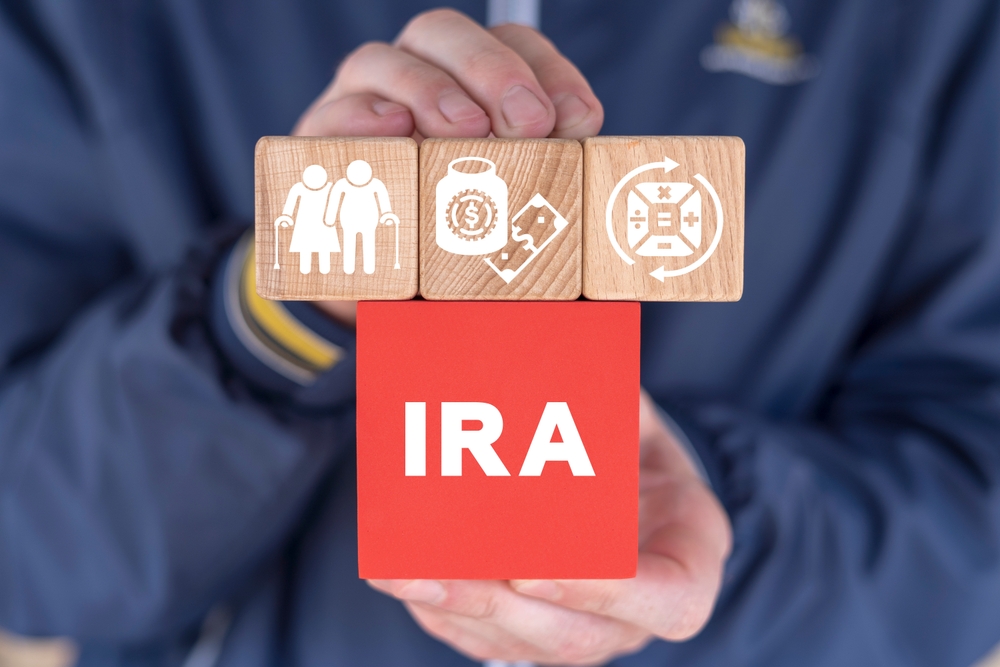IRAs have long served as essential tools to help reach retirement goals. However, as savers’ needs become more diverse and complex, legacy IRA programs could fall short. By leveraging advanced technology, IRALOGIX helps financial institutions deliver IRA programs that not only help meet the evolving demands of modern savers but also change the future of retirement saving.
The Future of IRAs
Today’s retirement planning industry is more dynamic than ever, with investors seeking solutions that offer convenience, flexibility, transparency, and personalized support. This evolution is leading to the development of innovative IRA features that transform IRAs from basic savings vehicles into customized retirement planning tools.
Technology-driven platforms are at the forefront of this transformation. For example, SaaS-based solutions enable financial institutions to work with platform providers to offer an innovative IRA program without having to modify existing systems architecture. IRALOGIX is revolutionizing the retirement industry with its proprietary cloud-native recordkeeping platform that offers complete IRA administration and the unique, flexible features that are maximizing the role of IRAs in a retirement saver’s financial journey.
Here are some of the features that make IRALOGIX a collaborator for taking your IRA program into the future.

Competitive Investments for Everyone
IRALOGIX provides financial institutions complete control over the investment line-up in their IRA program using institutional shares with no minimums. This flexible structure helps to ensure that all savers, regardless of the size of their account balance, can access competitive investment options compared to the typical retail alternatives.
With no minimum balance requirements, financial institutions can say “yes” to any size IRA, meeting a huge gap in the industry for many savers. Financial institutions can also support retirement plan sponsors by providing an automatic rollover IRA program with the financial organization’s choice of a default investment. When individuals claim their IRAs, they can reallocate to the IRA program’s competitive options that are carefully screened by the financial institution and continue saving for retirement.
Customized Interfaces to Promote Your Brand
A fully customizable, white-label platform allows each financial institution to promote its brand while offering an innovative IRA program, providing a competitive edge in the marketplace. Accountholders can access the IRA platform from their financial institution’s website with seamless integration.
Flexible Advice Solutions
IRALOGIX works with Morningstar Investment Management, LLC and Envestnet to offer digital advice engines that allow financial institutions to help ensure that investors across all risk profiles, ages and net worth can receive tailored savings guidance in a managed account.
Through IRALOGIX’s relationship with Morningstar Retirement, financial institutions can also offer a managed account engine, Morningstar® Retirement Manager℠, to provide even more automated support. This feature helps put savers on the path to meeting their retirement goals with holistic, dynamic and easily accessible digital advice. Using the information an individual provides, this service can
-
- Recommend a personalized investment portfolio,
- Monitor and adjust allocations as needed,
- Estimate the amount of savings an individual will need in retirement,
- Provide regular progress reports, and
- Recommend changes to contributions, retirement age, and Social Security strategies to help the individual reach their goals.
These integrated features help make it easier for financial institutions to offer comprehensive advice services to anyone, helping individuals reach their retirement goals and helping to enhance portfolio performance.
Automated Features
IRALOGIX automates other critical aspects of retirement saving and income planning:
-
- Savers can set up recurring contributions, helping to ensure growth of their retirement savings and dollar-cost averaging.
- IRALOGIX simplifies and automates the Required Minimum Distribution (RMD) process, helping ensure compliance and reducing administrative burdens.
- Retirees can receive a personalized withdrawal strategy and automate monthly payments to help ensure a steady income stream throughout their retirement.
IRALOGIX’s cloud-native technology provides these features and more, with paperless enrollment and transactions on mobile-friendly portals.
Grow Your IRA Footprint with IRALOGIX
The future of IRAs is more than promising, driven by innovative features that allow financial institutions to help meet the diverse needs of savers and retirees. IRALOGIX is leading this change with an IRA platform that leverages advanced technology to ensure that flexible and personalized features are available for any size account balance.
Financial institutions looking to enhance their IRA programs, while offloading administration and compliance burdens, can collaborate with IRALOGIX to make this happen. Contact us to learn how we can support you in meeting the evolving demands of retirement savers.
©2024 Morningstar Investment Management LLC. All rights reserved. The Morningstar name and logo are registered marks of Morningstar, Inc. Morningstar Retirement offers research- and technology-driven products and services to individuals, workplace retirement plans, and other industry players. Associated advisory services are provided by Morningstar Investment Management LLC, a registered investment adviser and subsidiary of Morningstar, Inc.
Morningstar® Retirement Manager℠ is intended for citizens or legal residents of the United States. Investment advice generated by Morningstar Retirement Manager is based on information provided and limited to the investment options available in the defined contribution plan. Projections and other information regarding the likelihood of various retirement income and/or investment outcomes are hypothetical in nature, do not reflect actual results, and are not guarantees of future results. Results may vary with each use and over time.
All investments involve risk, including the loss of principal. There can be no assurance that any financial strategy will be successful. There is no guarantee that the results of their advice, recommendations or objectives of a strategy will be achieved.



